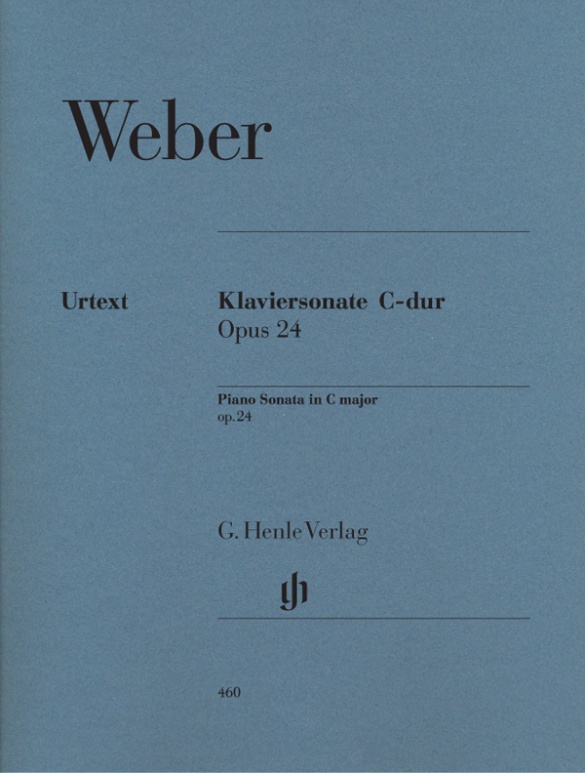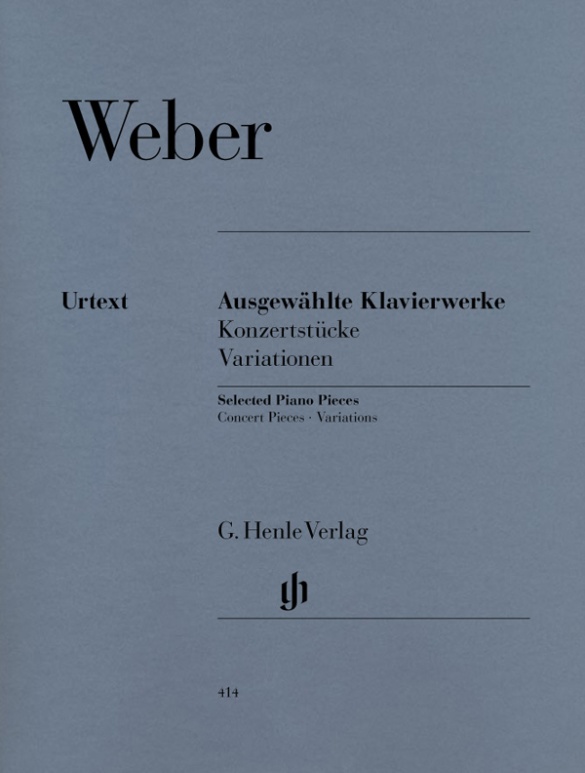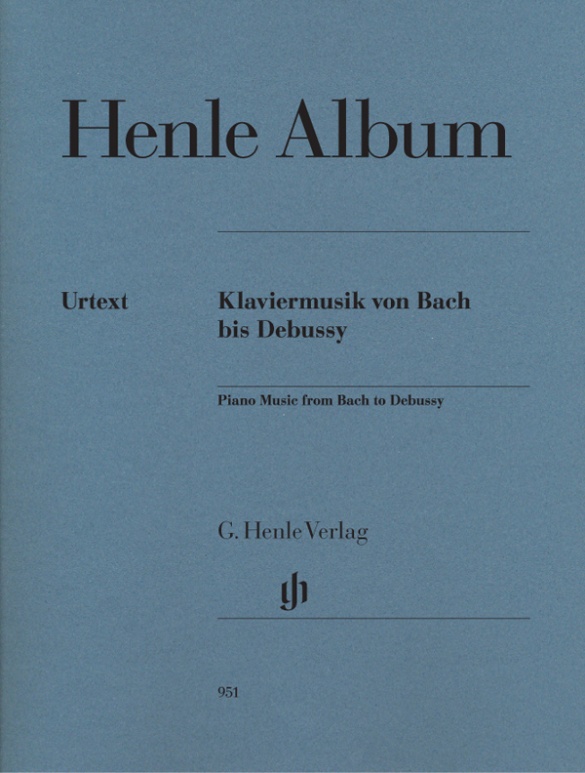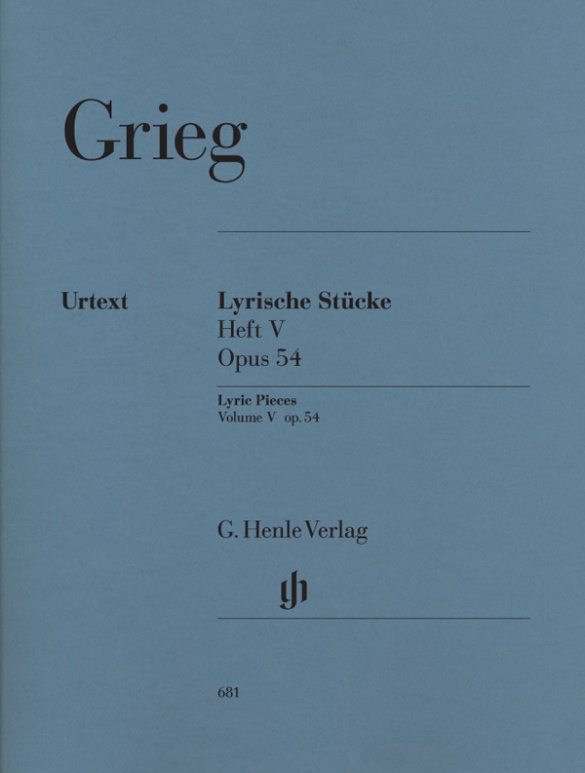Carl Maria von Weber
Piano Sonata C major op. 24
Carl Maria von Weber’s four piano sonatas, all composed in the decade 1812-1822, are considered the pillars of his not very extensive piano oeuvre. In these sonatas, Weber, who was one of the most renowned pianists of his era and often also improvised in his concerts, fully satisfied the expectations of the audiences of his time. Brilliant playing technique combines here with catchy melodies. The technically very demanding Sonata op. 24 in C major from 1812 brings together four different moods in its four movements. A gem is the E major Trio of the Minuet, which seems to anticipate the poetry of Mendelssohn’s “Midsummer Night’s Dream”. Besides the first edition, Weber’s autograph has been consulted for this Urtext edition. In her preface to this Urtext, editor Wiltrud Haug-Freienstein discusses interesting details concerning the sources, individual readings of the musical text and Weber’s compositional style.
Content/Details
About the Composer
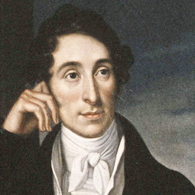
Carl Maria von Weber
One of the most important German opera composers before Wagner, he advocated for a German opera through his own output and in his writings. His fame is predicated on “Der Freischütz,” which was received emphatically as a German nationalist opera. His instrumental works (orchestral pieces, solo concerti, chamber music, piano works) are largely based on Classical models though already anticipate the Romantic sound.
| 1786 | Born in Eutin on November 18 or 19. Journeyman years with the “Webersche Schauspielergesellschaft,” a wandering acting troupe. He plays smaller roles for children. |
| 1797 | The troupe comes to Salzburg, where he studies composition with Michael Haydn from 1798. |
| 1800 | Premiere in Freiberg of his first Romantic, comic opera, “Das Waldmädchen” (“The Forest Maiden”). |
| beginning 1803 | Years of study in Vienna with Georg Josef Vogler. |
| 1804–06 | First appointment as music director in Breslau (Wrocław). |
| 1810 | Premiere in Frankfurt am Main of the Romantic opera “Silvana.” Piano Concerto No. 1 in C major, Op. 11. |
| 1811 | Clarinet Concerti No. 1 in F minor, Op. 73, and No. 2 in E-flat major, Op. 74, commissioned by Maximilian of Bavaria; in 1812, Piano Concerto No. 2 in E-flat major, Op. 32. |
| 1813–16 | Opera director and music director of the Estates Theater in Prague. From 1817 onward,courtl music director in Dresden. |
| 1819 | Piano pieces: “Rondo brillante” in E-flat major, Op. 62; “Aufforderung zum Tanze” (“Invitation to the Dance”) in D-flat major, Op. 65; “Polacca brillante” in E-flat major, Op. 72. Trio in G minor for piano, flute, and cello, Op. 63. |
| 1821 | Premiere in Berlin of his Romantic opera “Der Freischütz,” Op. 77; it is received as an archetypal German opera due to its subject matter and music, although it integrates German, French, and Italian elements. Konzertstück in F minor for Piano and Orchestra, Op. 79, which paves the way for one-movement concerto compositions in the nineteenth century. |
| 1823 | Premiere in Vienna of “Euryanthe,” Op. 81. |
| 1826 | Premiere in London of “Oberon.” Death in London on June 5. |
About the Authors
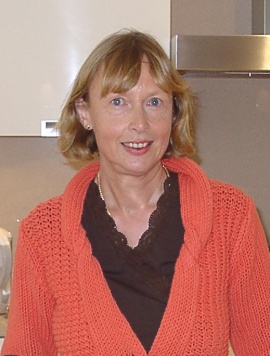
Wiltrud Haug-Freienstein (Editor)
Dr. Wiltrud Haug-Freienstein, born in 1955 in Riedlingen, read musicology at the Ludwig-Maximilians-Universität in Munich and was awarded her doctorate in 1987 for her thesis entitled “Motiv, Thema und Kompositionsaufbau bei Franz Liszt”.
She started out as a freelance editor for G. Henle Publishers, where she became a permanent editor in 1987, following a three-year period at the Richard Wagner Complete Edition in Munich. She remained at G. Henle Publishers until 2008. She edited and supervised the publication of numerous Urtext editions.
Product Safety Informations (GPSR)

G. Henle Verlag
Here you can find the information about the manufacturer of the product.G. Henle Verlag e.K.
Forstenrieder Allee 122
81476 München
Germany
info@henle.de
www.henle.com
recommendations
autogenerated_cross_selling
Further editions of this title
Further editions of this title


